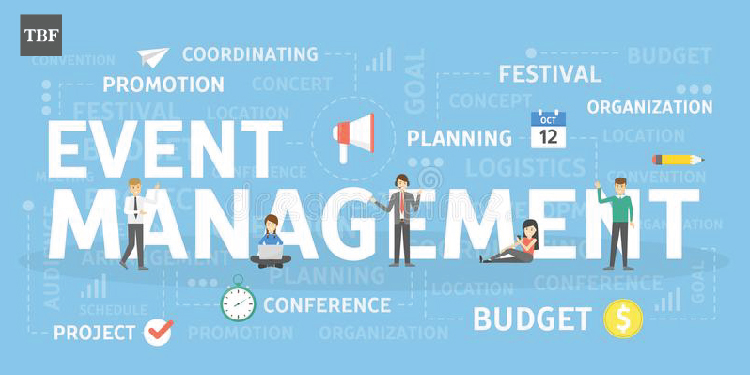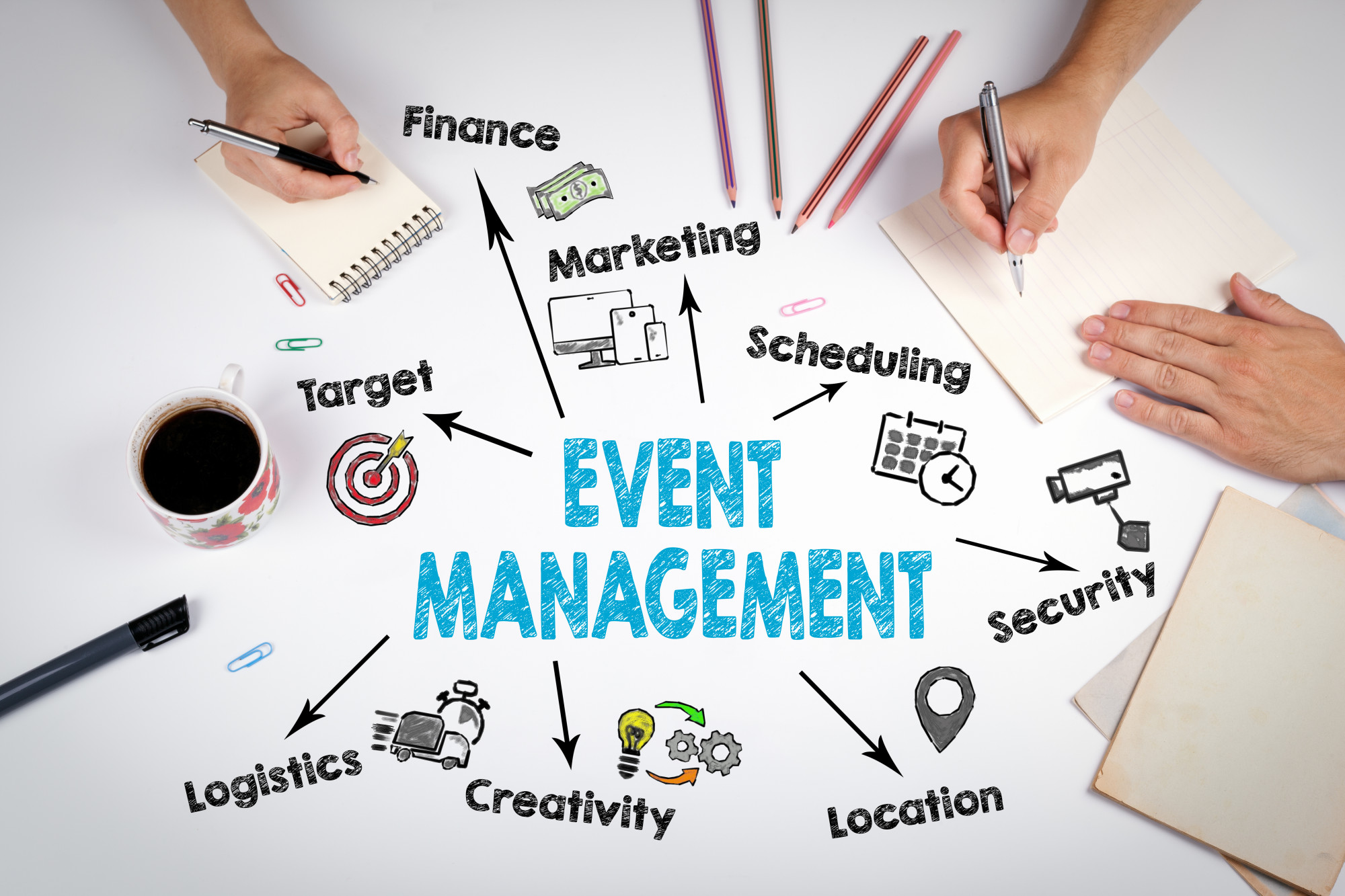Understanding Everything About Event Management and Its Duty in Effective Events
Event management is a vital consider the execution of successful gatherings. It entails cautious planning and control to ensure that every element aligns with the desired vision. From company events to social events, the efficiency of occasion management can significantly influence attendee experience. Understanding the nuances of this field reveals more than just logistics - charlotte event companies. The intricacies of interaction, budgeting, and assessment play essential roles in forming outcomes. What are the crucial elements that really drive success?
The Importance of Event Management
Event management plays a crucial duty in guaranteeing the success of any gathering, whether it be a corporate conference, wedding, or celebration. It incorporates the preparation, company, and implementation of occasions, which needs careful interest to information and a structured strategy. Successful occasion management helps create unforgettable experiences for participants, promoting involvement and contentment.
Effective event management can optimize source appropriation, guaranteeing that budget plans are adhered to while making best use of the impact of the occasion. It involves working with different elements such as location selection, distributor management, and logistics, every one of which add to a smooth experience.
Additionally, efficient occasion management can minimize potential threats and difficulties, preparing for unexpected concerns that might emerge. By focusing on communication and cooperation amongst stakeholders, occasion managers can guarantee that objectives are fulfilled, leading to effective results and favorable comments from participants. Ultimately, the value of occasion management depends on its capacity to transform visions into reality.
Trick Parts of Event Preparation
In occasion preparation, several crucial components are essential for success. Budget management methods, place option tips, and timeline development essentials develop the structure of an efficient plan. Each of these elements plays a significant role in guaranteeing that an event runs efficiently and fulfills its goals.

Budget Plan Management Methods
Efficient budget management is a keystone of successful occasion preparation. It entails precise allocation of sources to guarantee that all facets of the occasion are effectively funded. A detailed budget plan needs to consist of categories such as venue, catering, enjoyment, advertising, and backup funds for unexpected expenditures. To maintain financial control, planners need to track expenditures very closely and frequently compare them versus the budget. Making use of budgeting software application can simplify this process, supplying real-time updates on economic status. In addition, obtaining numerous quotes from vendors can aid identify cost-efficient options without endangering high quality. By establishing clear concerns and adhering to a well-structured budget plan, event managers can browse monetary obstacles and enhance the general success of the occasion.
Place Selection Tips
Choosing the appropriate venue is necessary for any kind of effective occasion, as it sets the stage for the general experience. When choosing a place, occasion coordinators must take into consideration factors such as location, capability, and ease of access. The venue needs to be conveniently obtainable for participants, ideally located near transport alternatives. In addition, the dimension has to fit the anticipated variety of visitors pleasantly, with room for any kind of organized activities. Planners should additionally assess the location's services, including audiovisual devices, seating setups, and catering alternatives. Budget constraints play a significant role; consequently, recognizing the overall costs, including covert fees, is crucial. Finally, visiting the location ahead of time permits for a direct examination and helps assure it aligns with the event's vision and needs.
Timeline Development Essentials
A well-structured timeline is essential for successful event preparation, working as a roadmap that guides planners through each phase of the procedure. Trick elements of timeline growth consist of establishing target dates for each task, from first idea to event execution. Planners have to prioritize activities, such as protecting suppliers, verifying the location, and promoting the occasion. Regularly upgrading the timeline guarantees that all stakeholders stay educated and accountable. Furthermore, incorporating buffer times for unanticipated delays can aid preserve total momentum. It is vital to straighten the timeline with the occasion's goals and sources, enabling efficient allowance of time and budget plan. Inevitably, a well-crafted timeline improves coordination and fosters a successful occasion experience for both planners and participants.
The Function of Communication in Events
Effective communication is essential in occasion management, making sure that messaging is clear and regular. It facilitates control amongst different stakeholders, which is essential for a smooth execution. Additionally, having robust crisis interaction approaches in position can considerably mitigate obstacles that might occur throughout an occasion.
Importance of Clear Messaging
Clear messaging acts as the foundation of effective event management, ensuring that all stakeholders-- participants, enrollers, and organizers-- are aligned in their assumptions and understanding. Reliable communication fosters trust and transparency, enabling for clear goals and preferred outcomes to be expressed. When messages are concise and consistent, they lower the threat of misconceptions and misinterpretations, which can lead to operational inadequacies. In addition, clear messaging improves participant interaction, as individuals are more probable to attach with an event site web when they understand its function and value. In addition, it aids in advertising and marketing initiatives, making it possible for enrollers to acknowledge the value of their investment. charlotte event companies. Inevitably, clear messaging is important for producing a natural experience that reverberates with all involved, helping with the overall success of the occasion
Control Among Stakeholders
Effective event management counts heavily on smooth coordination amongst stakeholders, where communication plays an important role. Effective interaction guarantees that all parties, consisting of vendors, sponsors, and team members, are lined up with the event's objectives and timelines. Normal updates and clear directives promote a collective setting, lessening misunderstandings and improving performance. Stakeholders should establish open channels of interaction, utilizing tools such as emails, conferences, and project management software program to track progress and address issues promptly. Additionally, recognizing each stakeholder's role and duties boosts accountability, ensuring that jobs are executed as prepared. Inevitably, well-coordinated communication among stakeholders is crucial for maneuvering the intricacies of event preparation, causing an effective and remarkable event experience for all included.
Reliable Dilemma Interaction Approaches
How can event supervisors assure that they are prepared for unanticipated obstacles? Effective situation communication strategies are vital for handling unforeseen circumstances throughout events. To start with, event managers ought to develop clear communication channels, ensuring all stakeholders are informed promptly. Developing a situation interaction strategy in advance permits speedy action, outlining duties and duties. Furthermore, educating staff to react to dilemmas ensures that the team is geared up to deal with emergency situations properly.
Utilizing Clicking Here numerous interaction systems, such as social media, email, and public news, aids get to diverse audiences promptly. Normal updates during a situation preserve transparency and build trust amongst guests. Eventually, proactive preparation and clear communication can significantly minimize the adverse impact of situations, leading to successful occasion management, even in tough scenarios.
Budgeting and Financial Management
Budgeting and financial management are important parts of efficient occasion planning, as they regularly identify the overall success of the occasion. A well-structured budget acts as a roadmap, outlining expected expenditures and income streams. This financial plan helps event supervisors allocate resources efficiently and stay clear of overspending.
Crucial element of budgeting consist of venue prices, food catering, entertainment, advertising, and staffing. Each expense must be thoroughly estimated and checked throughout the planning process. Financial management additionally entails tracking earnings resources, such as ticket sales and sponsorships, to guarantee economic viability.
Regular economic evaluations allow occasion coordinators to adjust their techniques as needed, mitigating threats related to unanticipated expenses. By preserving clear economic documents, event supervisors can demonstrate responsibility to stakeholders and improve future planning efforts. Eventually, effective budgeting and monetary management prepared for providing remarkable occasions while achieving organizational goals.

Logistics and Operational Preparation
A well-structured budget prepares for effective logistics and operational planning in event management. It allows event coordinators to allot sources successfully, ensuring that all logistical elements align with the overall vision. Key components include venue selection, transportation arrangements, and devices procurement. charlotte event companies. Planners must anticipate the demands of guests, vendors, and team, making sure seamless sychronisation throughout the event
Functional preparation additionally incorporates team tasks and training, making sure all staff member understand their roles. Communication is essential; as a result, establishing clear channels amongst stakeholders lessens misconceptions. In addition, backup plans for unforeseen conditions, such as inclement climate or technological failures, are vital to maintain smooth procedures.
Ultimately, the success of an occasion greatly counts on careful logistics and functional preparation. By focusing on these facets, coordinators can develop unforgettable experiences while sticking to budget restraints and timelines, thereby accomplishing organizational objectives.
Advertising And Marketing and Promo Strategies
While efficient logistics and operational preparation develop the foundation of occasion management, effective marketing and promotion approaches are vital for drawing in attendees and making sure a high degree of engagement. These approaches often begin with determining the target market, which allows occasion organizers to tailor their messaging and choose proper interaction networks. Utilizing social networks systems, e-mail advertising, and collaborations with influencers can substantially amplify reach and visibility.
In addition, creating compelling web content such as videos, blog sites, and graphics can generate interest and exhilaration around the occasion. Early riser ticket deals and advertising price cuts additionally offer as effective rewards for prospective participants. Engaging storytelling and clear phone call to activity are critical in transforming rate of interest into actual presence. Furthermore, leveraging analytics helps in examining the efficiency of advertising and marketing initiatives, allowing organizers to readjust approaches in real-time. Jointly, these elements add to a successful event that reverberates with its target market.
Examining Event Success and Feedback
Effective examination of occasion success and comments is essential for constant renovation and long-term growth in occasion management. This process involves systematically collecting and analyzing data connected to different facets of an occasion, consisting of guest satisfaction, logistical execution, and general impact. Studies, interviews, and focus teams prevail approaches used to accumulate qualitative and quantitative comments from individuals.
Secret efficiency indications (KPIs) such as participation numbers, revenue generation, and social media involvement additionally play an essential function in determining success. By assessing this information, occasion supervisors can determine toughness to build on and weaknesses to deal with in future events.
Feedback enables for adjustments to be made in real-time, enhancing the attendee experience and fostering loyalty. Inevitably, a comprehensive examination process not just educates future planning however also adds to a more durable reputation for the event management team, making certain sustained success in an affordable landscape.

Frequently Asked Concerns
What Credentials Are Required to Become an Event Supervisor?
To become an event manager, people commonly need a combination of relevant education, such as a level in friendliness see this page or company management, and useful experience in preparation, arranging, and executing different kinds of occasions effectively.
Just how Do I Choose the Right Place for My Event?
Picking the right place entails assessing the occasion's function, capability, location, amenities, and spending plan. A complete review warranties that the place lines up with the occasion's goals and improves the total experience for guests.
What Modern Technology Devices Are Crucial for Event Management?
Necessary innovation tools for occasion management include enrollment software, occasion applications, ticketing systems, project management devices, and analytics software. These sources improve preparation, improve guest engagement, and facilitate interaction, ultimately adding to an effective event experience.
Just how Do I Deal With Unexpected Concerns During an Occasion?
To manage unanticipated problems throughout an occasion, one need to remain calm, examine the circumstance, communicate effectively with the group, execute pre-planned contingency steps, and adjust quickly to assure marginal disturbance to the overall experience.
What Are the Latest Patterns in Event Management?
The latest fads in occasion management include digital and hybrid styles, sustainability techniques, personalized participant experiences, improved use technology, and immersive environments. These patterns aim to develop even more appealing and remarkable experiences for participants.